Structure of Platelets
Platelets are tiny, measuring 2-3 micrometers in diameter. They lack a nucleus and are packed with granules containing clotting factors, enzymes, and other chemicals essential for blood clotting. These granules are released when the platelets become activated.Functions of Platelets
Platelets have several essential functions in the body, including:- Clot Formation: When a blood vessel is damaged, platelets adhere to the site of injury and release chemicals to form a temporary plug, preventing further blood loss.
- Clot Retraction: Platelets contract to reduce the size of the clot and promote wound healing.
- Clot Stabilization: They facilitate the binding of other clotting factors to strengthen and stabilize the clot.
- Secretion of Growth Factors: Platelets release growth factors that promote tissue repair and regeneration.
Disorders Related to Platelets
Several disorders can affect platelet function, including:- Thrombocytopenia: A condition characterized by a low platelet count, leading to an increased risk of bleeding and bruising.
- Thrombocythemia: An elevated platelet count, which can lead to excessive clotting and potential blockage of blood vessels.
- Platelet Function Disorders: Conditions where the platelets do not function properly, leading to abnormal bleeding or clotting.
Study Guide
To understand platelets better, consider the following study guide:- Describe the structure of platelets and their role in the body.
- Explain the process of clot formation and the role of platelets in this process.
- Discuss the importance of platelet activation and the release of granules in the clotting process.
- Compare and contrast thrombocytopenia and thrombocythemia in terms of platelet count and associated risks.
- Research and present a case study or real-life example of a disorder related to platelet function.
◂Science Worksheets and Study Guides Fifth Grade. Energy and ecosystems
Study Guide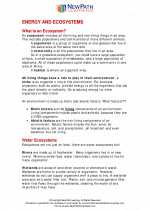 Energy and ecosystems
Energy and ecosystems  Worksheet/Answer key
Worksheet/Answer key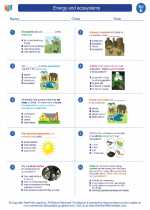 Energy and ecosystems
Energy and ecosystems  Worksheet/Answer key
Worksheet/Answer key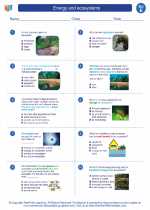 Energy and ecosystems
Energy and ecosystems  Worksheet/Answer key
Worksheet/Answer key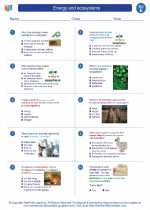 Energy and ecosystems
Energy and ecosystems  Vocabulary/Answer key
Vocabulary/Answer key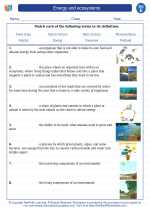 Energy and ecosystems
Energy and ecosystems  Vocabulary/Answer key
Vocabulary/Answer key Energy and ecosystems
Energy and ecosystems  Vocabulary/Answer key
Vocabulary/Answer key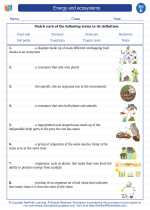 Energy and ecosystems
Energy and ecosystems 

 Worksheet/Answer key
Worksheet/Answer key
 Worksheet/Answer key
Worksheet/Answer key
 Worksheet/Answer key
Worksheet/Answer key
 Vocabulary/Answer key
Vocabulary/Answer key
 Vocabulary/Answer key
Vocabulary/Answer key
 Vocabulary/Answer key
Vocabulary/Answer key

The resources above cover the following skills:
PHYSICAL SCIENCE (NGSS)
Energy
Students who demonstrate understanding can:
Use models to describe that energy in animals’ food (used for body repair, growth, motion, and to maintain body warmth) was once energy from the sun.